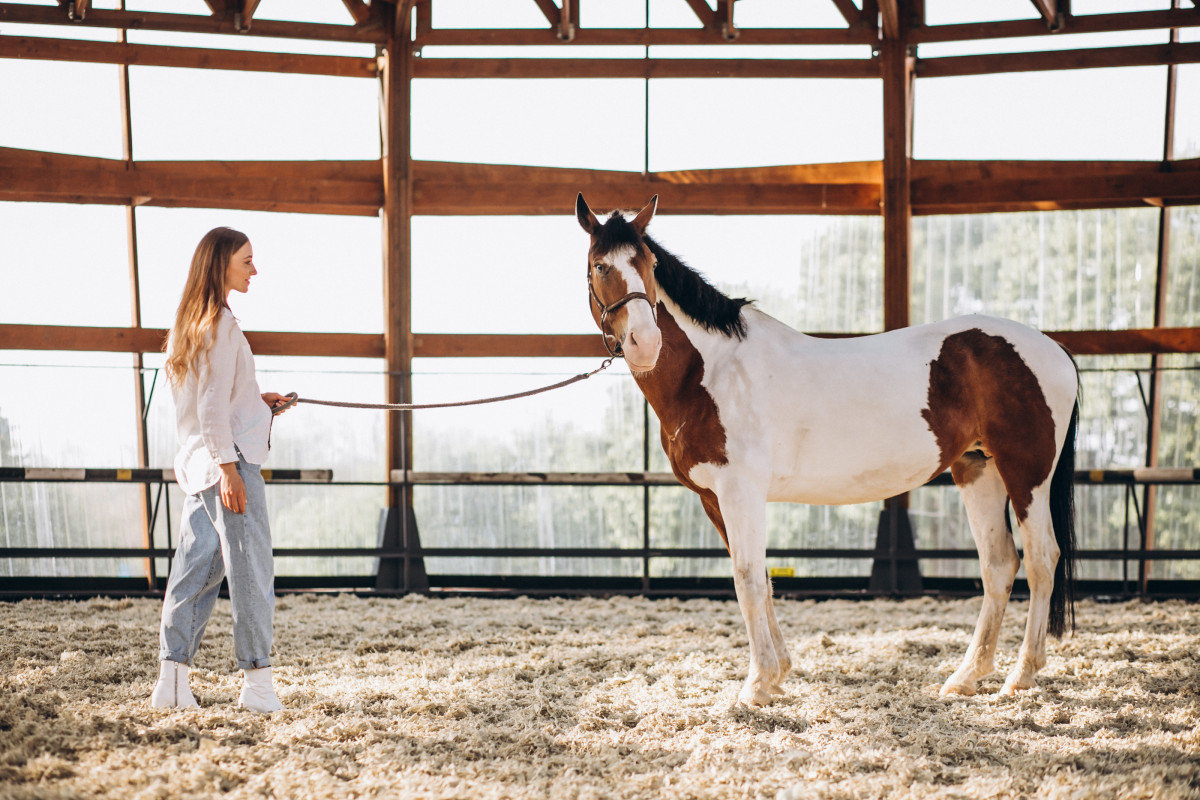Horses are magnificent creatures, and their well-being is paramount. While Pilates might seem like a human-centric activity, its core principles can be effectively adapted to benefit horses as well. Here’s how Pilates can potentially improve the lives of our equine companions:
Benefits of Pilates for Horses:
- Improved Core Strength and Stability: Pilates exercises target core muscle groups, crucial for proper posture, balance, and coordination in horses. This translates to better performance in various disciplines and reduced risk of injury.
- Enhanced Flexibility and Range of Motion: Pilates movements help to lengthen and stretch muscles, improving flexibility and range of motion. This can lead to greater athleticism, smoother gaits, and improved performance in activities like dressage.
- Increased Proprioception (Body Awareness): Pilates emphasizes body awareness by engaging the mind-body connection. This helps horses become more aware of their bodies, leading to better balance and coordination, and improved responsiveness to rider aids.
- Reduced Muscle Tension and Soreness: Pilates exercises can help to release muscle tension and soreness, improving comfort and overall well-being for horses. This can be particularly beneficial for horses recovering from injuries or experiencing muscle stiffness.
- Improved Mental Focus and Relaxation: Pilates incorporates mindful breathing techniques, which can help horses stay calmer and more focused during training and competition.
Important Considerations:
- Adapting Exercises: Pilates exercises for horses should be adapted and modified by qualified professionals to ensure safety and effectiveness.
- Gradual Progression: Similar to humans, horses need to gradually progress in their Pilates practice to avoid injury.
- Individualized Approach: Each horse has unique needs and abilities. A tailored Pilates program designed by a certified equine professional can maximize benefits.
- Positive Reinforcement: Positive reinforcement and respect for the horse’s individual comfort level are crucial for a successful Pilates program.
It’s important to note:
- While Pilates offers potential benefits, it’s not a substitute for proper veterinary care and training.
- Consulting a veterinarian before starting any new exercise program, including Pilates, is crucial to ensure the horse’s safety and well-being.
While still emerging, Pilates holds potential benefits for horses, but its overall importance still requires further research and exploration. Here’s a balanced perspective:
Potential Benefits:
- Improved core strength and stability: This can lead to better performance, reduced risk of injury, and improved posture.
- Enhanced flexibility and range of motion: This can benefit various disciplines like dressage and lead to smoother gaits.
- Increased proprioception: Improved body awareness can enhance balance, coordination, and responsiveness to rider aids.
- Reduced muscle tension and soreness: Pilates exercises can potentially help horses feel more comfortable and recover better from injuries.
- Mental focus and relaxation: Breathing techniques could potentially help horses stay calmer, especially during training or competition.
Current Limitations:
- Limited research: More studies are needed to definitively establish and quantify the benefits of Pilates for horses.
- Expert guidance required: Modifying exercises and creating safe, individualized programs are crucial for horse safety and effectiveness.
- Not a substitute for veterinary care: It’s essential to consult a veterinarian before starting any new program, including Pilates.
Conclusion:
Pilates can be a potentially valuable tool for enhancing equine well-being, but it’s not a definitive solution and requires careful implementation. Consulting qualified professionals and prioritizing horse safety and comfort are key. As research progresses, Pilates may play a more significant role in the future of equine health and performance.
It’s important to remember:
- Every horse is different, and tailored programs are crucial for success.
- Positive reinforcement and respecting individual comfort levels are essential.
- Always consult a veterinarian before starting any new exercise program for your horse.
The importance of Pilates for horses is currently evolving. While it shows promise, further research and responsible implementation are crucial before considering it a vital component of equine care.
Pilates offers a promising avenue for enhancing equine well-being when implemented thoughtfully and with expert guidance. As research and understanding in this field evolve, Pilates may become a valuable tool for promoting optimal physical and mental health in horses.tunesharemore_vert
Discover more from Pilates All Ages
Subscribe to get the latest posts sent to your email.
